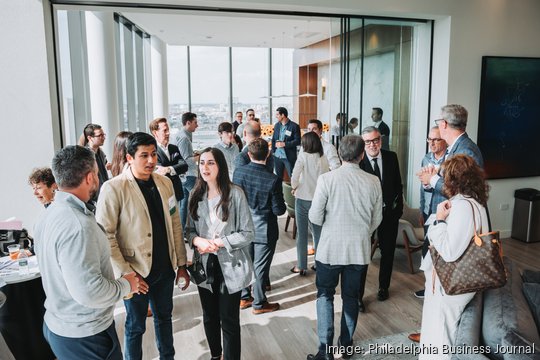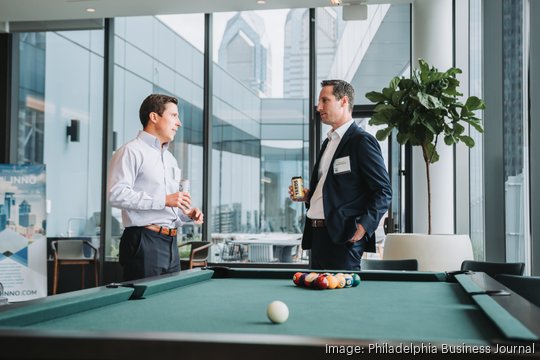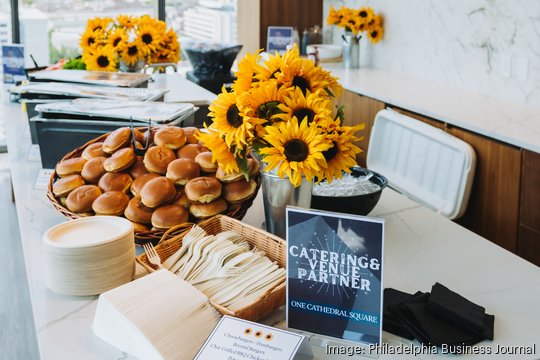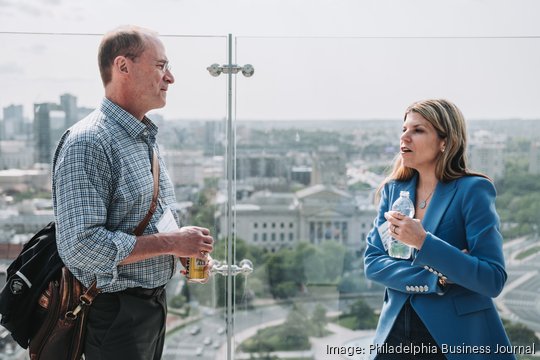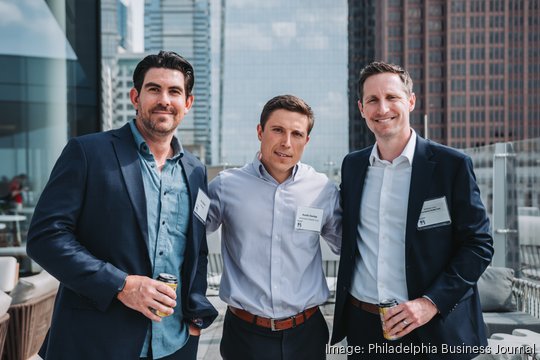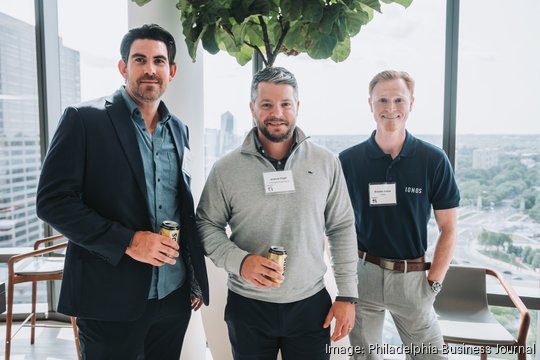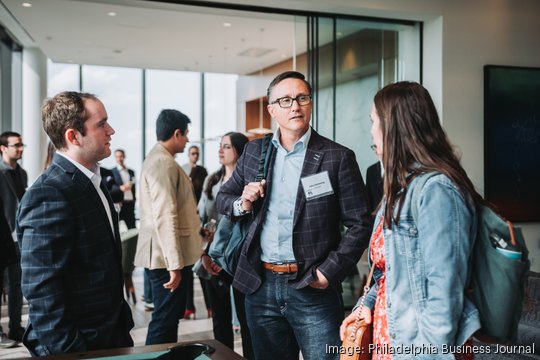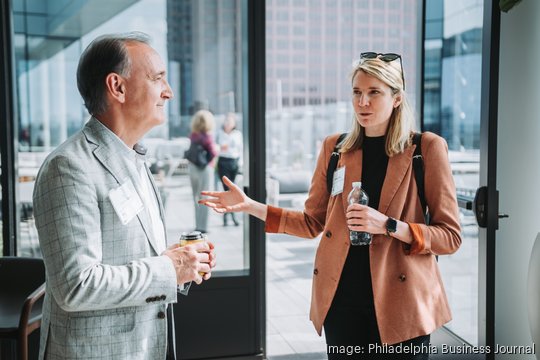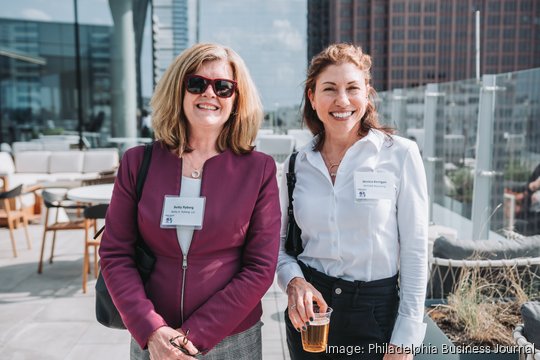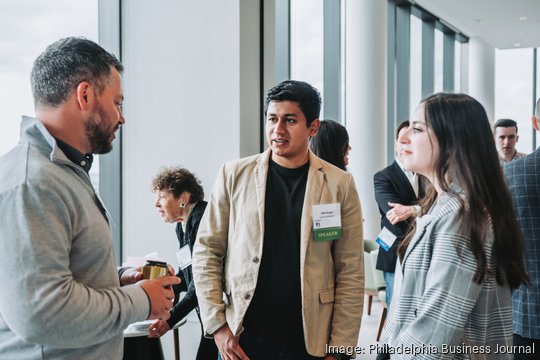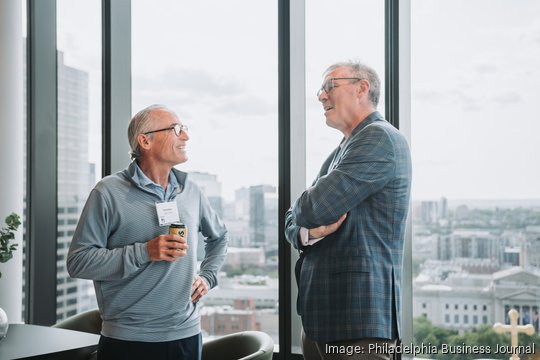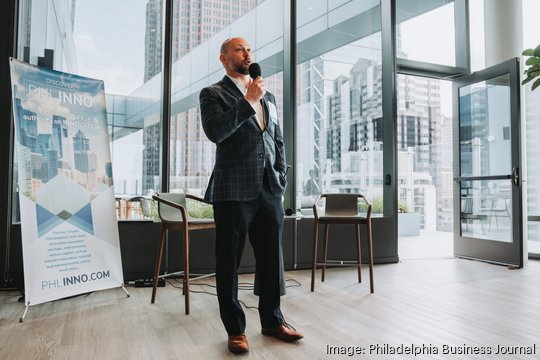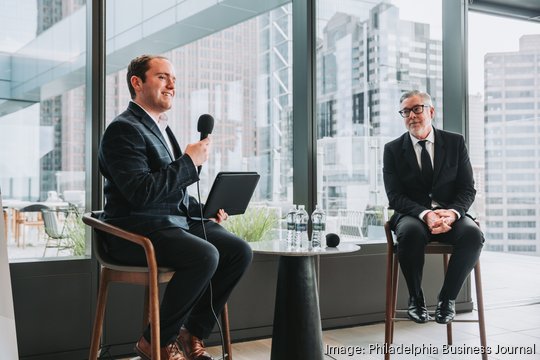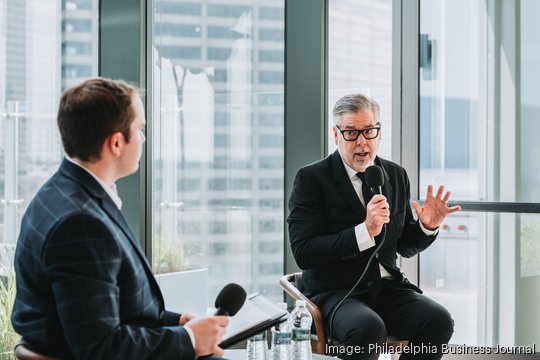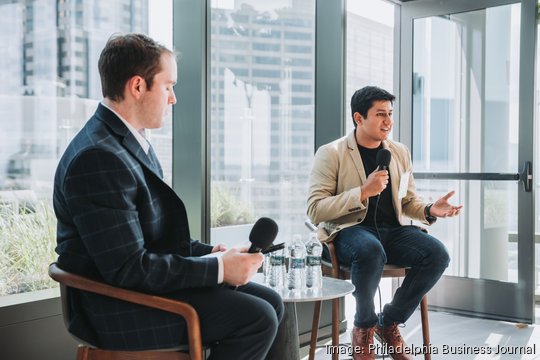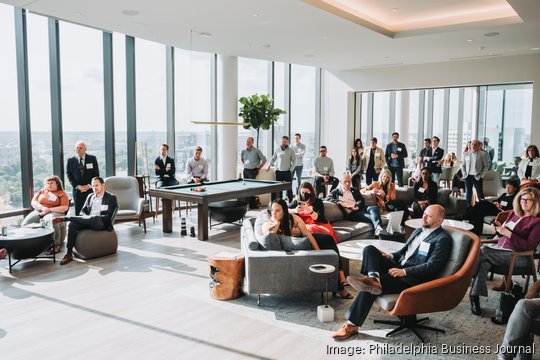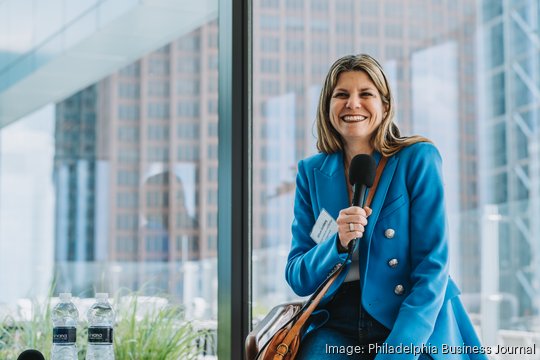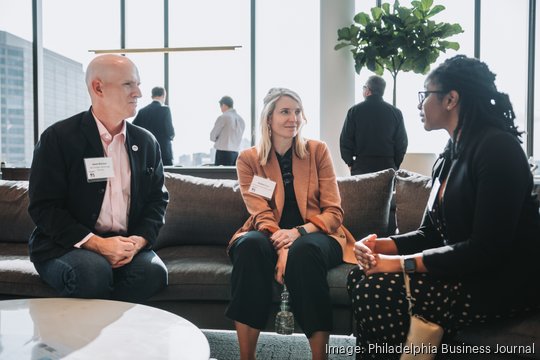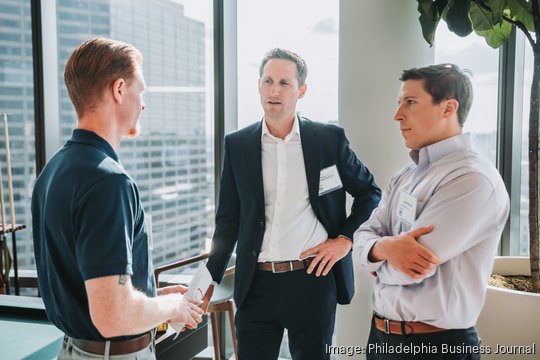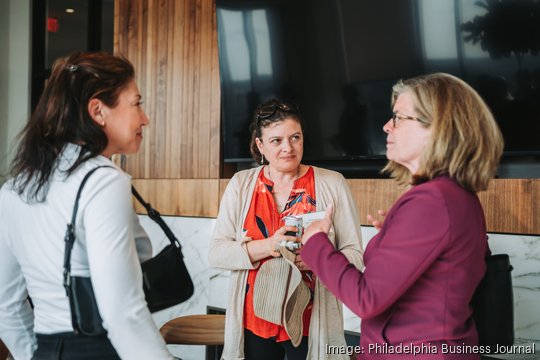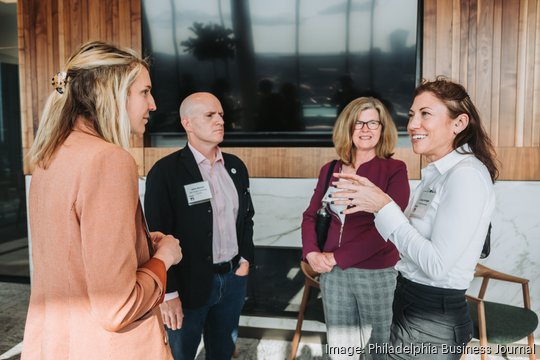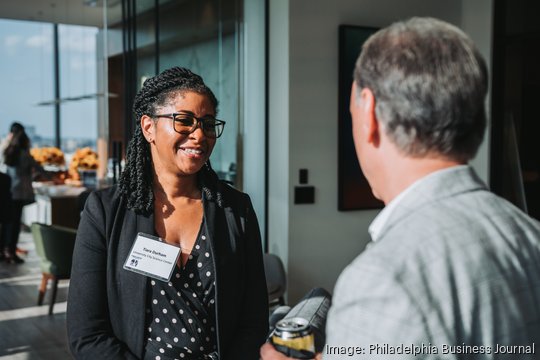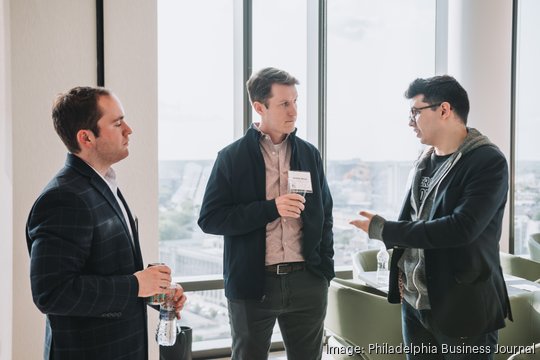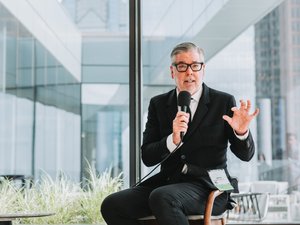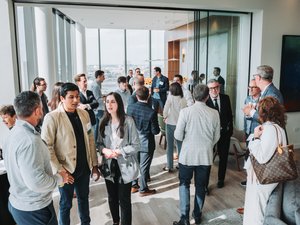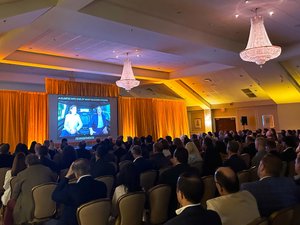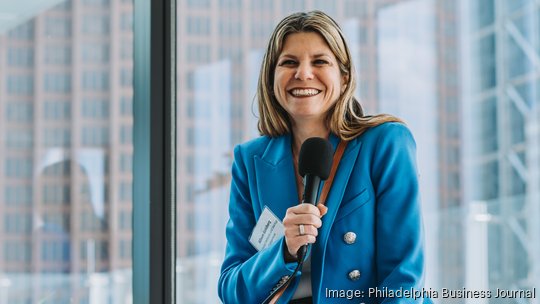
Startup founders and investors alike have ridden a roller coaster over the past few years, from record-breaking fundraising numbers in 2021 to a dearth of venture capital deals in 2023.
The economic shifts have forced plenty of pivots, and cost-cutting has become commonplace. Allison Goldberg, the managing partner of Comcast Ventures and Startup Engagement, and Adit Gupta, the co-founder and CEO of Philadelphia grocery startup Lula Convenience, spoke about how they're navigating the changing ecosystem and down market during PHL Inno's recent "Steering Startups" event.
"I think 'down market' is an understatement," Gupta said. "It's a very interesting world that we're in. If you're a startup founder you can probably attest to all of the craziness happening out there. I think the whole market sentiment has changed from growth at all costs in 2021 to now just hyperawareness of where every dollar is being spent. That really trickles down to every operational decision people make."
Gupta, along with fellow Drexel University alum Tom Falzani, founded the startup as Lula Delivery at the height of the pandemic as a way for mom-and-pop convenience stores and bodegas to reach more customers through delivery platforms, an idea sparked by his own parents' struggles with their convenience store during the stay-at-home mandates prompted by Covid-19. Lula has evolved to be a "business-in-a-box" platform that incorporates inventory management and tracks other metrics for convenience stores, in addition to connecting them with delivery systems.
The company has pivoted to cater to major accounts like Wawa, 7-Eleven and Raceway, helping to deliver 800,000 items in the last 24 months across all 50 states. Gupta added that another contract is in the works that will get Lula in 1,000 more stores. Pivots like Lula's shifts to a more comprehensive platform and large-scale clients are an essential part of the entrepreneurial journey, Gupta said, especially in a tight market.
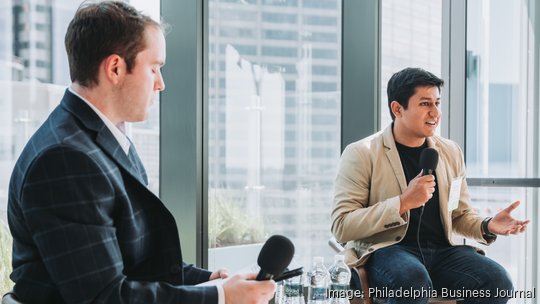
"The worst thing I did with my last company was never pivot at all, just keep building for years and years," said Gupta, who previously co-founded VyB Technologies, a real-time rating app for social experiences, during his time at Drexel. "I think the best thing we did with Lula is to do bigger pivots in earlier stages. As you come closer to finding product-market fit, the magnitude of those pivots really change."
Gupta added that in a down market, when companies aren't flush with extra cash, it's an opportunity to "do less and do it much better." He said sometimes founders can get infatuated with too many products or too many features, ultimately losing focus on their original mission.
Goldberg also stressed the importance of pivots. She said one of her best deals, made while she was an investor with Time Warner, was with Discord. After starting as a video game, it ultimately evolved into the comprehensive communication platform that it is today.
She also agreed with Gupta's point that companies can get distracted from their original purpose, pointing to the pervasiveness of startups attempting to integrate artificial intelligence into their platforms. "Don't say you're AI if you're not," Goldberg joked, but admitted that in the current venture capital market, "there's AI and then there's everything else."
"If we're talking artificial intelligence in general, that's a very hot space right now — lots of companies raising money, huge rounds, very high valuations across the board," Goldberg said. "That sector is heating up and it's getting even hotter every minute."
Comcast's LIFT Labs Accelerator recently launched its six-week program with a focus on AI companies for the first time. Goldberg said she could see real applications for AI in the business and consumer spaces.
Steering Startups
Though the tech world may be shifting, Goldberg said that what she looks for when investing hasn't changed in the more than 20 years she's been in the venture space.
"[I look for] great founders innovating in markets that we think are going to be large and growing markets," Goldberg said. "Great founder-market fit, meaning the person or people starting and running the business is uniquely suited to do it right, and have the passion and the background and expertise. They're the right people to take on the problem."
Goldberg has seen the ripple effects that great founders can have on an ecosystem. Ideally, founders bring employees to the area and, once they sell their companies and exit, those employees remain in the market and look to spin off their own local startups, Goldberg said. For Gupta, it's resources like Drexel's Baiada Institute, programs from the Philadelphia Alliance for Capital and Technologies (PACT) and entrepreneurial law clinics have kept him close to the "tight knit" Philadelphia startup ecosystem. Goldberg said she's seen that ecosystem "grow tremendously" in the past 20 years.
"Starting the company here, it doesn't matter where you raise the money from — you can raise money from anywhere in the world, really — but keeping people here and then staying for the exits," Goldberg said of the importance of keeping more founders in the region, which has been key for the growth of top innovation centers like New York and Silicon Valley. "So when Lula sells and has a great exit, if you stay here the whole time, the employees who benefited from that then start their next company."
